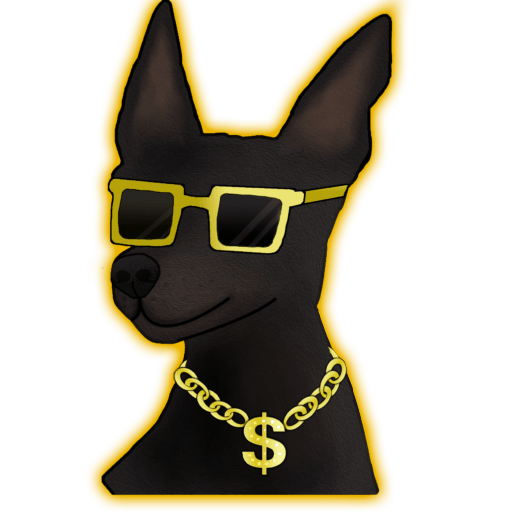ATTENTION: Information about coronavirus and pets continues to be updated as experts learn more. To see the most recent and updated information, visit the CDC’s Info Sheet on COVID-19 and Animals or World Organisation for Animal Health (OIE).
With new information about coronavirus and dogs coming out daily, you may wonder what it means for your dog.
Can your dog get it? Can you pass it on to them? Can they pass it on to you?
And what precautions should you take?
We’re answering all those questions in this guide on coronavirus and dogs/pets.
FAQ on Dogs and Coronavirus 2019
These are the most frequently asked questions when it comes to coronavirus and dogs. The answers reflect the best evidence we have at the time of writing, according to official sources. We’re covering:
- What is Coronavirus?
- Did Coronavirus Originate in Animals?
- Can Dogs Get Coronavirus?
- Can Dogs Pass on the Coronavirus to Me or My Other Pets?
- How Can I Prevent My Dog From Coronavirus?
- How Can I Stop My Dog From Coming Into Contact with Coronavirus?
- Should I Buy a Mini Mask for My Dog?
- What Do I Do With My Dog If I Have Coronavirus?
- What Do I Do With My Dog If THINK I Have Coronavirus?
- What Do I Do If I Think My Dog Has Coronavirus (And I Don’t)?
- I Have Coronavirus 2019. Should My Dog Be Tested?
- My Dog Has Coronavirus. What Do I Do?
- Should I Hoard Dog Supplies?
- I’m Self-Isolating with My Dog. We’re Bored. What Can We Do?
What is Coronavirus?
Coronaviruses refer to a certain type of virus. There are many different subtypes of coronavirus. The one causing a pandemic in 2020 is referred to as a novel (AKA new) coronavirus or COVID-19. It’s important to note that because this is a new virus, we don’t have all the information yet. Experts are learning new information daily—that includes how the illness affects your dog. Since we don’t know exactly how it works, experts are basing advice on how the virus has spread in other countries and how previous similar viruses have acted. As the virus continues to spread, experts update their advice and make clarifications. To see the most up to date information, see the CDC’s Info Sheet on COVID-19 and Animals.
The novel coronavirus is currently classified as a pandemic. It’s a respiratory illness with symptoms in humans including:
- Runny nose
- Sore throat
- Cough
- Fever
- Breathing problems
Although the illness is typically mild, it can result in severe cases and in more rare cases, death. Typically, people most at risk for severe and fatal cases are those with severe chronic medical conditions and older people. Even if you’re not at risk, you could pass the virus onto someone who is. So what makes it that much different from the regular seasonal flu? Hospitalization and death rates are higher and it’s spreading quicker. That’s why it’s classified as a pandemic.
The best way to prevent the illness is to avoid being exposed to it by washing your hands. Some countries have gone on “lock down” to avoid going into the public and spreading the virus. In many states in the U.S. and Canada, experts are advising people to work from home if they can and self-isolate.
If you are sick, contact your health provider. Since tests are limited and if the health system gets stressed, you may be asked to monitor your symptoms and self-isolate. For constantly-updated advice on precautions to take, check the CDC.
Did Coronavirus Originate in Animals?
It’s believed that the coronavirus originated in animals. However, it’s believed that it’s transmitted from human to human. That means it appears that your pet can’t transfer it to you. There is currently no evidence to suggest that anyone takes precautions to avoid getting COVID-19 coronavirus from a pet.
Can Dogs Get Coronavirus?
You may have seen information circulating on social media claiming that dogs can’t get coronavirus. That isn’t true.
The WHO before said that there was no evidence that dogs could be infected with the virus. A day later, they seemingly retracted that, telling Quartz that there’s no evidence that dogs have infected humans with COVID-19. That remains true as of this writing, there’s no evidence that infected dogs can spread the disease to humans.
What’s changed is that dogs can be infected with the novel coronavirus. However, it doesn’t seem to affect them in the same way. In other words, having the virus doesn’t necessarily mean they’re ill or at risk. However, more research needs to confirm whether this is true.
Hong Kong has reported infected dogs, calling their results a “weak positive.” These dogs were found to have the virus after their owners also tested positive. However, the dogs weren’t showing any symptoms, according to World Organisation for Animal Health (OIE) With more research, that finding could be confirmed or disproven.
We should also consider that we don’t know exactly how the disease works in humans. We know even less about how the coronavirus affects dogs. Testing for COVID-19 in the U.S. and some other countries is limited for humans. Since we are not testing our pets, it is possible we don’t have an accurate picture of how many pets could potentially be infected and what (if anything) that means to their health. You should be checking this page for updates on how coronavirus affects dogs.
Can Dogs Pass on the Coronavirus to Me or My Other Pets?
The only way to know if your dog has coronavirus is to get them tested and testing is unavailable to dogs in most cases. Even if your dog is infected, there’s currently no evidence that they can pass it onto you or your other pets. However, you should keep yourself updated as more information becomes available.
How Can I Prevent My Dog From Coronavirus?
The best way to prevent your dog from getting COVID-19 is to:
- Avoid getting it yourself
- Not allowing them to come into contact with anyone who’s sick
To avoid getting coronavirus, you should work from home if your job permits. If it doesn’t, follow any precautions your workplace has set out. If you take public transit, take extra caution by washing your hands.
In any case, you should practice self-isolation until the disease stops spreading. That means staying home except for necessities (groceries or medical care). Don’t visit public areas. In some places, restaurants and entertainment spaces are forced to close to prevent this. Check your local organizations for expert advice in your area.
How Can I Stop My Dog From Coming Into Contact with Coronavirus?
Even though the virus may not affect dogs, some dog parents may be worried about their dog getting it and passing it onto them. There is currently no evidence that dogs can pass on the coronavirus, according to the CDC.
People may wish to take extra precaution. In this case, you can take the same advice many experts are giving us: self-isolate. That means while dog walks are okay, you may limit going to a dog park or any dog gatherings.
Should I Buy a Mini Mask for My Dog?
No. Since dogs don’t appear to sick from COVID-19 and or pass it on, masks are unnecessary. Plus, this is great news to him. He probably would hate that pesky face cage anyway.
What Do I Do With My Dog If I Have Coronavirus?
If you have tested positive to coronavirus, you may be quarantined in a hospital. You may also be told to stay home and self-quarantine, which includes staying away from other family members and pets. Since it may be possible to transfer it to your dog, you should limit contact. Although there may not be a high risk for your dog, many dog parents would rather be safe than sorry.
If you live with family or roommates, you can ask them to take care of your dog while you get better. Tell them when you usually feed your dog and how much. Ask if they can take your dog out for walks when they can.
If you live alone, you have a few options:
- Ask a friend or family member to take care of your pet at your place or at theirs
- Get a dog sitter
- Hire a dog boarding agency (but you may wish to take caution as large facilities may be at a higher risk for spreading the virus if it turns out to spread amongst animals)
- Dog hospitals— Some hospitals are available to take care of pets if their owners are sick with coronavirus
What Do I Do With My Dog If THINK I Have Coronavirus?
Right now, testing is limited in the United States and Canada. Since not everyone is being tested, it’s possible to have the virus and not know it. If you have the symptoms listed above, the best practice is to self-isolate. Although you may not have it, staying away from others prevents it from spreading. It also prevents your pet from getting it in case it affects them.
If possible, ask a family member or roommate to care for your dog until you get better. If you live alone and want to take extra precaution, you may ask a friend to take care of your dog or hire a dog sitter. If that’s not possible, you may simply limit contact and hire a dog walker or have a friend come over for walks. You may also consider wearing a mask if you suspect you’re infected. (Remember: Masks are only effective if you are infected. If you don’t suspect you’re infected, you don’t need to wear one).
You should also practice basic hygiene as it relates to your dog. That includes:
- Washing your hands before and after touching them
- Washing your hands before and after touching their food and water or supplies
- Avoiding kissing or licking
What Do I Do If I Think My Dog Has Coronavirus (And I Don’t)?
As we discussed above, there’s no evidence to suggest that coronavirus poses the same risks for dogs as it does humans. Currently, there’s no evidence that the virus makes them sick at all, even if they test positive. Since it appears that they can’t transfer it to humans, some vets may not recommend any action if you think your dog has coronavirus and you (or anyone in your family) doesn’t.
Since dogs with coronavirus 2019 are not known to show signs, your vet may also suggest that it’s likely not the disease. With that being said, this advice could change as experts learn more, so you should always contact your vet in case. Always call beforehand in case the vet has specific instructions before going in.
Usually, dogs will only be considered for testing if their owners have tested positive. In this case, your healthcare provider and experts will do a risk assessment to see whether testing is necessary for your dog.
I Have Coronavirus 2019. Should My Dog Be Tested?
Besides telling you to self-quarantine, if you’ve tested positive for COVID-19, your healthcare provider and experts will do a risk assessment to see whether it’s a good idea to test your dog. According to OIE, it’s ideal for your local health and vet authorities to work together during this process. Since vets fight for animal rights, they make sure no inappropriate measures are taken against animals. They are an important part in the conversation.
If your dog is tested, nasal, oral and/or fecal/rectal samples will be taken, according to the OIE.
My Dog Has Coronavirus. What Do I Do?
From what we know right now, dogs with coronavirus do not show symptoms of it. The only way to know if your dog as the disease if by testing them. Tests aren’t available unless the owner tested positive, and even in those cases, testing may be unavailable. If your dog has tested positive, don’t panic. There’s no evidence that your dog’s coronavirus 2019 can cause illness for them or spread to you or other animals. With that being said, it’s considered best practice to keep them away from other animals if they’ve tested positive.
Should I Hoard Dog Supplies?
No. Actually, you shouldn’t hoard anything. Shortages surrounding the coronavirus are caused by panic buying and not need. In essence, when you buy more than you need, you create a shortage that likely wouldn’t exist otherwise. You are also putting vulnerable populations at risk because they can’t afford to buy in the quantity you do and there is nothing left for them when they need it.
Imagine this: Buddy the Black Lab goes without food because his dad couldn’t afford to mass buy 20 bags like you did and now there’s not a single one left for him. Not cool, right? Prevent these issues by buying when you need, when you need it. There is no need to hoard supplies, food or dog food-making ingredients.
I’m Self-Isolating with My Dog. We’re Bored. What Can We Do?
Many health experts around the world are advising people to stay at home unless out of necessity. Self-isolation doesn’t mean you can’t enjoy your time with your best four-legged pal. Without running out into a crowded dog park, there’s still plenty of activates you can do together if you’re not sick.
Also, contact with our dog can help us feel more connected to the world again while we self-isolate away from others. (Plus, dogs are better than humans anyway, no?).
Here’s a list of coronavirus-safe activities to do with your dog:
- Take a hike somewhere not crowded
- Teach her a new trick
- Make her some new dog treats
- Make her a new dog food recipe
- Give the best belly rub you ever did give
- Cuddle up with a movie
- Put on music and dance with your pup
- Have a little photoshoot with your dog
- Make a blanket fort and allow your pup to explore it
- Give your dog a massage
- Realize that masks don’t help unless you’re infected. Use those masks to play “which mask is the treat under?”
- Play a small indoor game of fetch
- Make her a DIY Toy
- Do some dog yoga
Summary of Dogs and Coronavirus 2019
Information on the coronavirus is developing quickly as experts learn more. Based on what experts know now, it appears that dogs can test a “weak positive” for 2019 coronavirus, although they don’t have any symptoms and it doesn’t appear to be a risk for them. It also doesn’t look like they can transfer COVID-19 to humans or other animals. In most places, health professionals will only consider testing your dog if you’ve tested positive. If you’ve tested posited or you think you have COVID-19, you should limit contact with your dog as much as possible as a best practice. If your dog has tested positive, they should also avoid contact with other animals. To see the most recent and updated information, visit the CDC’s Info Sheet on COVID-19 and Animals or World Organisation for Animal Health.








